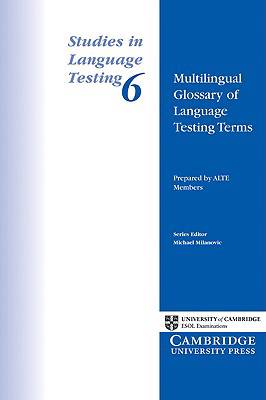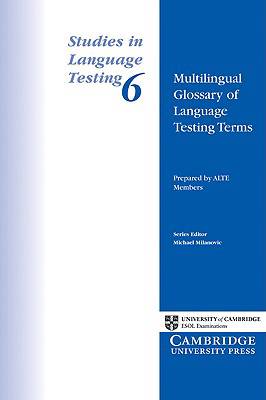
Bedankt voor het vertrouwen het afgelopen jaar! Om jou te bedanken bieden we GRATIS verzending (in België) aan op alles gedurende de hele maand januari.
- Afhalen na 1 uur in een winkel met voorraad
- In januari gratis thuislevering in België
- Ruim aanbod met 7 miljoen producten
Bedankt voor het vertrouwen het afgelopen jaar! Om jou te bedanken bieden we GRATIS verzending (in België) aan op alles gedurende de hele maand januari.
- Afhalen na 1 uur in een winkel met voorraad
- In januari gratis thuislevering in België
- Ruim aanbod met 7 miljoen producten
Zoeken
Multilingual Glossary of Language Testing Terms
Studies in Language Testing 6
Ucles, Alte Members The Alte Members, The Alte Members
€ 84,95
+ 169 punten
Omschrijving
Inevitably, it is in the most commonly used languages that the vocabulary of language testing and assessment is most highly developed, and for which most of the literature has been produced. A multilingual glossary has a significant role to play in encouraging the development of language testing in less widely taught languages. The idea of producing a multilingual glossary of assessment and language testing terms has grown out of the needs experienced by members of the Association of Language Testers in Europe (ALTE) while engaged in work on language testing projects. It is anticipated that this glossary will be of use, not only to members of ALTE, but to many others working in the context of European languages, who are involved in language testing and assessment. The glossary contains entries in ten languages: Catalan, Danish, Dutch, English, French, German, Irish, Italian, Portuguese and Spanish.
Specificaties
Betrokkenen
- Auteur(s):
- Uitgeverij:
Inhoud
- Aantal bladzijden:
- 416
- Taal:
- Engels
- Reeks:
- Reeksnummer:
- nr. 6
Eigenschappen
- Productcode (EAN):
- 9780521658775
- Verschijningsdatum:
- 14/01/1999
- Uitvoering:
- Paperback
- Formaat:
- Trade paperback (VS)
- Afmetingen:
- 152 mm x 229 mm
- Gewicht:
- 553 g

Alleen bij Standaard Boekhandel
+ 169 punten op je klantenkaart van Standaard Boekhandel
Beoordelingen
We publiceren alleen reviews die voldoen aan de voorwaarden voor reviews. Bekijk onze voorwaarden voor reviews.









